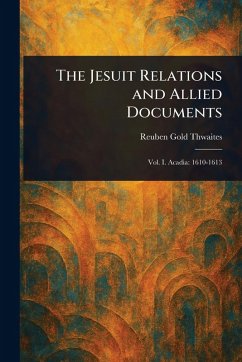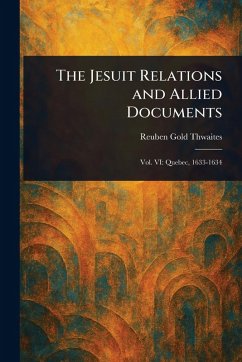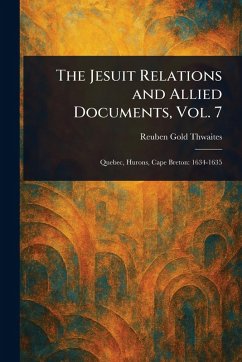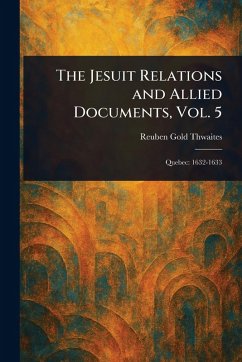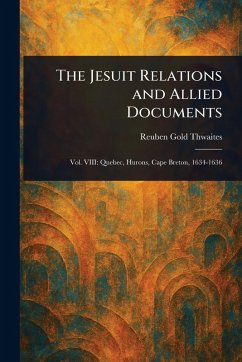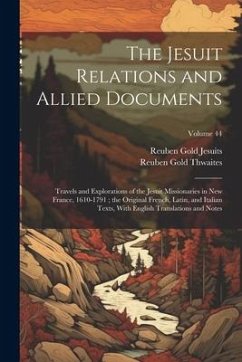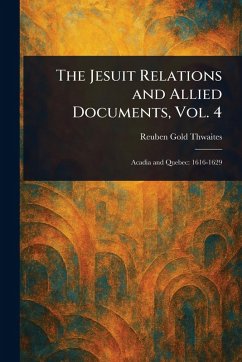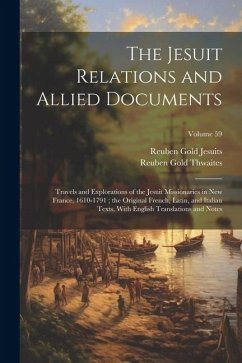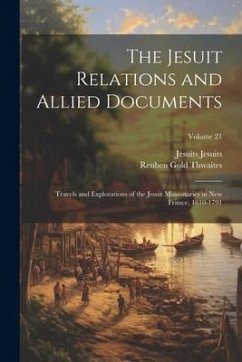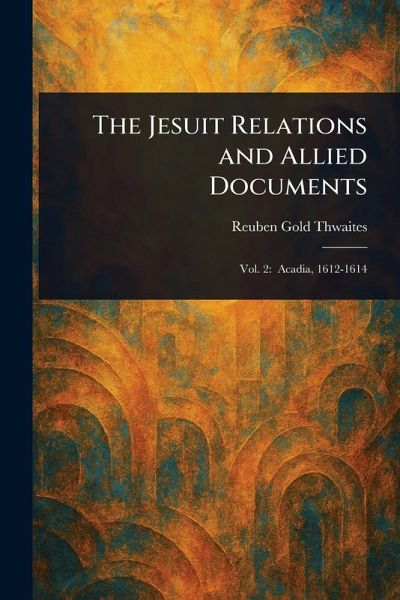
The Jesuit Relations and Allied Documents
Versandkostenfrei!
Versandfertig in über 4 Wochen
20,99 €
inkl. MwSt.

PAYBACK Punkte
10 °P sammeln!
Venture into the heart of early North American colonial history with "The Jesuit Relations and Allied Documents, Vol. II: Acadia, 1612-1614." This meticulously prepared volume offers a vital glimpse into the Jesuit missions and their interactions with the indigenous populations of Acadia. Compiled from original documents, this collection provides invaluable primary source material for understanding the complexities of the period. Explore firsthand accounts of Jesuit missionaries as they navigated the challenges of establishing a presence in a new world. Witness their encounters, observations, ...
Venture into the heart of early North American colonial history with "The Jesuit Relations and Allied Documents, Vol. II: Acadia, 1612-1614." This meticulously prepared volume offers a vital glimpse into the Jesuit missions and their interactions with the indigenous populations of Acadia. Compiled from original documents, this collection provides invaluable primary source material for understanding the complexities of the period. Explore firsthand accounts of Jesuit missionaries as they navigated the challenges of establishing a presence in a new world. Witness their encounters, observations, and efforts to build relationships and spread their faith. This volume serves as a crucial resource for historians, researchers, and anyone interested in the early colonial history of Canada and the United States. Discover the trials, tribulations, and triumphs of the Jesuits in Acadia during a pivotal era. Explore the religious, cultural, and political landscape that shaped the future of North America. This historical record endures as a testament to a transformative period. This work has been selected by scholars as being culturally important, and is part of the knowledge base of civilization as we know it. This work is in the public domain in the United States of America, and possibly other nations. Within the United States, you may freely copy and distribute this work, as no entity (individual or corporate) has a copyright on the body of the work. Scholars believe, and we concur, that this work is important enough to be preserved, reproduced, and made generally available to the public. We appreciate your support of the preservation process, and thank you for being an important part of keeping this knowledge alive and relevant.





